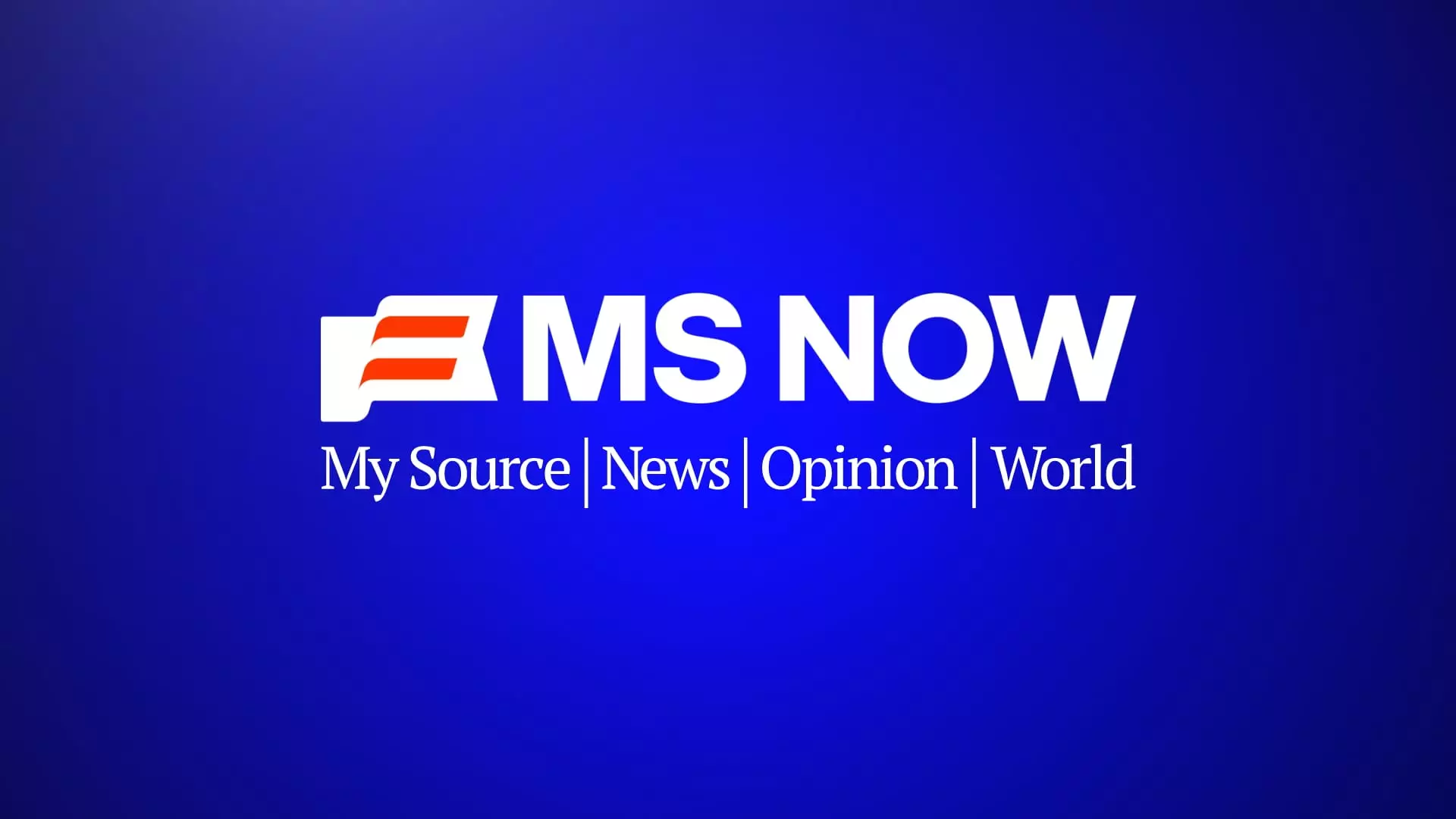The upcoming rebranding of MSNBC marks not merely a superficial change in logos or name but signals a deeper strategic shift that has profound implications for its role in the political landscape. After decades of being perceived as a bastion of liberal broadcasting—often accused of political bias—the network’s decision to shed its historical branding in favor of a new identity is a move that warrants both scrutiny and cautious optimism. This transformation offers an opportunity for the network to recalibrate its approach in serving its audience, but also raises critical questions about how partisan narratives and journalistic integrity are preserved—or undermined—in an era obsessed with branding and market differentiation.
The rationale behind the rebrand: marketing or ideological repositioning?
Versant’s leadership asserts that the name change is purely a strategic branding move—meant to distinguish the new MSNBC from NBC News and to foster independence in content creation. The internal memos emphasize that the commitment to journalistic integrity remains unchanged, yet there’s an undeniable undercurrent suggesting that this rebranding might serve a more insidious purpose. In today’s media ecosystem, image and perception often drive influence more than facts or fairness. By creating a new identity, Versant could aim to appeal to a broader, more centrist audience disillusioned with the sensationalism associated with political extremes.
However, branding in the political media sphere is rarely neutral. The shift from “MSNBC” to a moniker like “My Source News Opinion World” or “MS Now” could also be a subtle attempt to soften the network’s liberal reputation—or worse, to craft a new narrative that distances itself from criticisms of bias. A rebranding provides a strategic screen to repackage content without changing the core editorial stance, and in this context, it could be a matter of controlling perception rather than truth.
Independence or strategic maneuvering?
The assertion that MSNBC is establishing an “independent” newsroom separate from NBC News is intriguing but somewhat suspect. Given that the network will continue to cover overlapping stories, the real question is whether this independence is authentic or a carefully managed illusion. The move appears motivated by corporate concerns—perhaps fear of alienating conservative viewers or potential regulatory scrutiny—rather than a genuine desire for journalistic objectivity.
Furthermore, the political landscape today is marked by rapid shifts and intensifying polarization. A rebranded MSNBC attempting to project neutrality might be viewed skeptically by audiences who are increasingly savvy about media bias. This change could be an attempt to mask partisan inclinations or sanitize the network’s image—appealing to moderate viewers without alienating core supporters. Yet, in doing so, are they risking the authenticity that underpins credible journalism? Or is this merely a savvy business move aimed at survival in a hostile media environment?
The broader strategic vision: market dominance and influence
Versant’s plan to spin out as a publicly traded company and launch a sweeping marketing campaign signals that this rebranding also has a commercial component. The network’s position as the second-most watched cable news station makes it a valuable asset, and a refreshed identity could potentially expand its influence amidst an increasingly fragmented media landscape.
Similarly, the planned overhaul of logos across related brands like CNBC, USA Network, and Golf Channel indicates a comprehensive rebranding effort designed for synchronized market positioning. Such moves reflect a broader trend among media conglomerates: to craft identities that transcend specific political narratives and appeal to consumers—who are often eager for content that appears both modern and less politically charged.
This commercial ambition raises concerns about the prioritization of profits over substantive political coverage. When media outlets are driven—consciously or otherwise—by branding strategies aimed at maximizing market share, the risk is that objective journalism can fall victim to clickbait, sensationalism, or ideological moderation that serves corporate interests more than public understanding.
The rebranding of MSNBC is a moment of significant transition that will undoubtedly shape the political discourse in the United States. While it presents an opportunity to recalibrate and perhaps offer a more balanced or centrist perspective, it also raises fears that this move might be more about market repositioning than genuine ideological independence. As viewers and critics, we must remain vigilant, demanding transparency and accountability from a network that claims to uphold journalistic standards. A true rebranding should not only change logos and names but also renew a commitment to honest, responsible reporting—something that cannot be achieved through branding alone.

